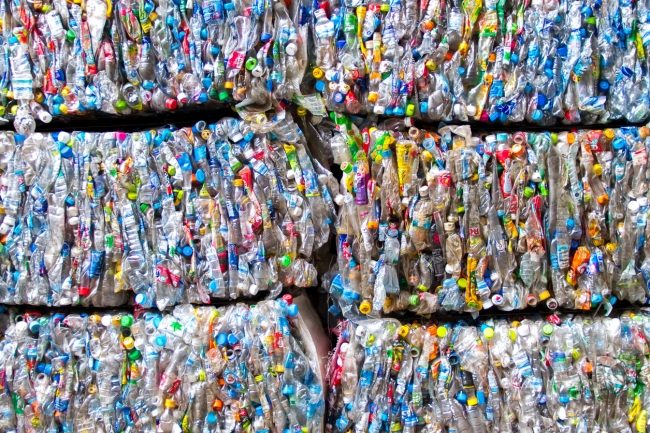Group of large manufacturers join forces to boost flexible plastic recycling
Five of the UK’s largest branded manufacturers: Mars UK, Mondelēz International, Nestlé, PepsiCo and Unilever, have collaborated to form a £1m fund to help make flexible plastic recycling economically viable for recyclers and easier for consumers.
The Flexible Plastic Fund is a UK industry first and is being led by producer compliance scheme, Ecosurety, with support from environmental charity, Hubbub.
In collaboration with manufacturers, retailers and recyclers, the fund aims to improve flexible plastic recycling and reduce plastic pollution by giving the material a stable value. This will in turn increase the supply of recycled plastic enabling industry to become more circular and meet the forthcoming UK plastic packaging tax obligations. This will motivate investment in much needed jobs and infrastructure to make flexible plastic recycling a financially sustainable system in the UK.New research from the University of Sheffield suggests there is strong consumer demand for recycling flexible plastic with 95% of participants saying they would be willing to recycle their flexible plastics. Sainsbury’s and Waitrose have already signed up to support the initiative by hosting flexible plastic collection points in selected stores across the UK. Several other major retailers are set to follow suit. As a result, recycling this material will become increasingly accessible to consumers, as they will be able to recycle all types of flexible plastic packaging with participating retailers.
With just 16% of UK local authorities currently offering household collection of flexible plastics, the amounts of this material collected for recycling are low. Flexible plastics include plastic bags, wrappers, films, pouches, packets and sachets and is described as ‘plastic bags and wrapping’, ‘soft plastics’ or ‘flexible plastics’. The fund will guarantee a minimum value of £100 per tonne of recycled product to incentivise recyclers to process flexible plastic.
Robbie Staniforth Head of Innovation and Policy at Ecosurety, said: “Historically the UK recycling system has not provided enough motivation to recycle flexible plastics. By creating a sustainable market for this material, longer term improvements can be made to ensure the flexible plastic that remains necessary for packaging is reliably recycled and eventually contributes to a circular economy, thereby tackling plastic pollution.”
Trewin Restorick CEO and co-founder of Hubbub, said: “The Flexible Plastic Fund is a really important initiative to show that flexible plastics can be recycled and be financially sustainable. People are ready and willing to recycle their flexible plastics – we just have to make the infrastructure work. Collaboration is key to making this a success and we are urging more manufacturers to invest in the fund, more retailers to collect flexible plastic for recycling and more recyclers to recycle flexible plastics.”
The long-term ambition of the fund is to drive progress towards creating a circular, UK-based flexible plastic recycling market that allows flexible plastic recycling via household collections. Flexible plastic represented 22% of all UK consumer plastic packaging in 2019 but only 6% was recycled. This type of plastic must be processed in a different way to other plastics due to its unique properties – it often contaminates rigid plastic recycling and clogs up machinery – something that could be overcome by creating a separate flexible plastic recycling stream.The initiative will provide fully audited transparency – at least 80% of the plastics collected will be recycled in the UK – rising to 100% by 2023. Until 2023, where there are currently limits in UK capacity and technology, up to 20% could be exported to qualifying facilities in Europe only. All material will be fully traceable and tracked from the collector through to new products. Unlike many other schemes, recyclers will only be paid if the plastic is definitely recycled. The manufacturers contributing to the Flexible Plastic Fund will then be able to access the packaging recovery notes (PRNs) generated by this high-quality, tracked recycling scheme.
The recycled plastic will be turned into a range of products including non-food grade plastic, non-food-grade film and food-grade film.
Louise Stigant, UK Managing Director, Mondelēz International, said: “Making our snacks sustainably and in the right way is at the heart of our purpose. Increasing the recyclability of our products and creating a circular economy so our packaging stays within the economy and not the environment is a priority for us. The Flexible Plastics Fund is an important step to ensuring packaging is collected, sorted and recycled in the UK. Meaningful change can only come when everyone collaborates, from companies, governments, waste management organisations to consumers.
Marija Rompani, Director of Ethics & Sustainability at the John Lewis Partnership, comments: “This initiative could be the spring board needed to change the way we handle flexible plastics in the UK, creating a recycling system that is both accessible to the public, circular and UK based. In support, we’re currently conducting a trial in 37 of our stores to allow customers to drop off their flexible plastics waste – from crisp packets to bubble wrap and cling film, which we hope will provide us with the intelligence needed to roll out more widely in the future.”
The Flexible Plastic Fund is calling for recyclers, manufacturers and retailers to get in touch to play their role in this vital scheme that is driving solutions to flexible plastic waste in the UK.
Source: Zenoot

